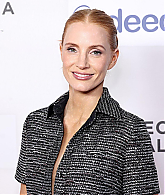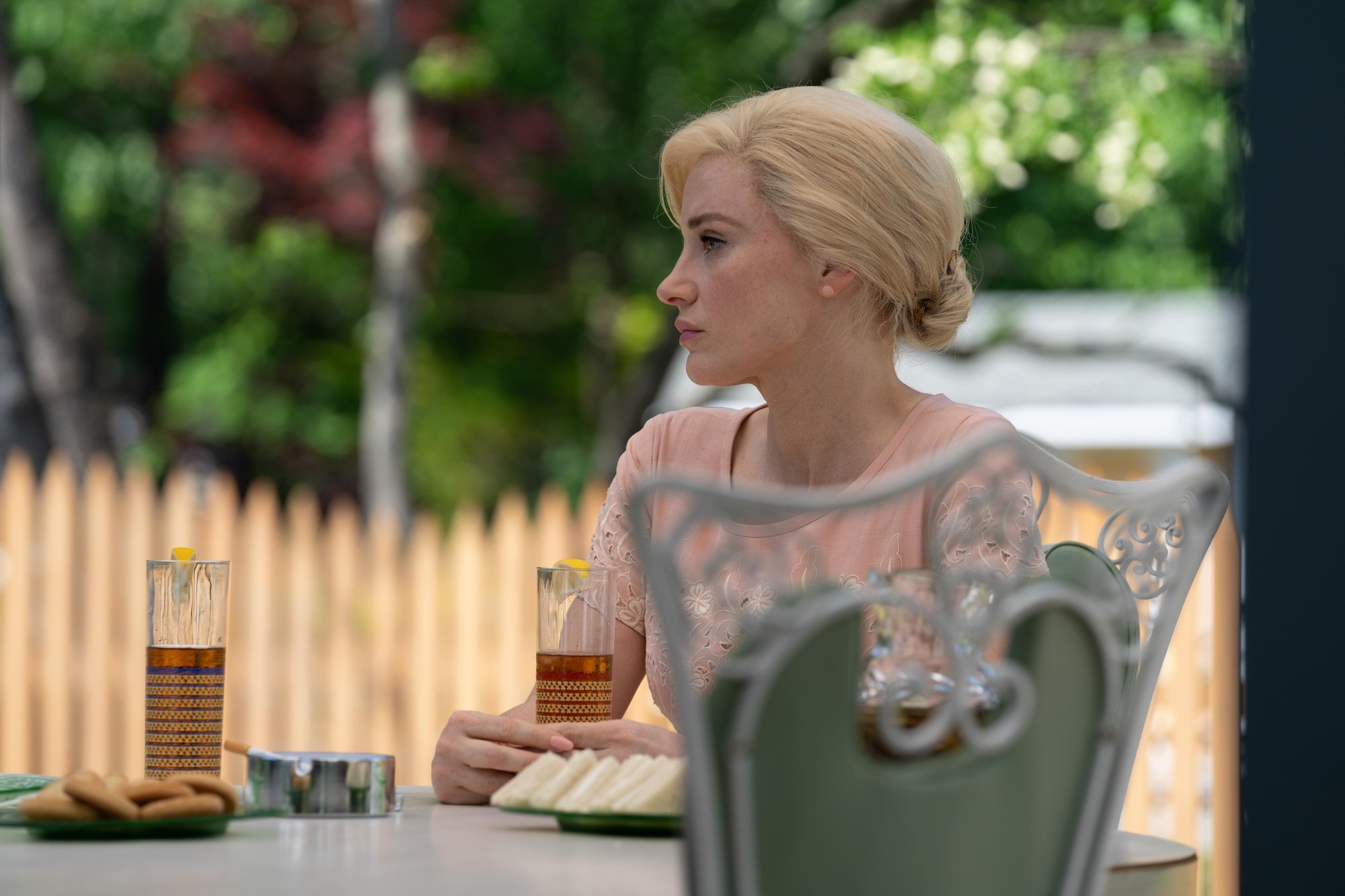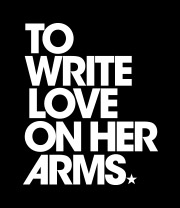 elcome to Jessica Chastain Network, your oldest and most complete resource dedicated to Jessica Chastain. You may better remember her as Molly Bloom in Molly's Game or Maya in Zero Dark Thiry. Academy Award winner for The Eyes of Tammy Faye, Jessica spans her career from big to small screen, seeing her not only in movies like The Help, The Debt, Miss Sloane, Woman Walks Ahead, The Zookeeper's Wife, The Good Nurse, she also played some iconic roles for series like Scenes from a Marriage and George & Tammy. Recently she registered a podcast series, The Space Within, and had a role in Memory and Mothers' Instinct. This site aims to keep you up-to-date with anything Mrs. Chastain with news, photos and videos. We are proudly PAPARAZZI FREE!
elcome to Jessica Chastain Network, your oldest and most complete resource dedicated to Jessica Chastain. You may better remember her as Molly Bloom in Molly's Game or Maya in Zero Dark Thiry. Academy Award winner for The Eyes of Tammy Faye, Jessica spans her career from big to small screen, seeing her not only in movies like The Help, The Debt, Miss Sloane, Woman Walks Ahead, The Zookeeper's Wife, The Good Nurse, she also played some iconic roles for series like Scenes from a Marriage and George & Tammy. Recently she registered a podcast series, The Space Within, and had a role in Memory and Mothers' Instinct. This site aims to keep you up-to-date with anything Mrs. Chastain with news, photos and videos. We are proudly PAPARAZZI FREE!

 elcome to Jessica Chastain Network, your oldest and most complete resource dedicated to Jessica Chastain. You may better remember her as Molly Bloom in Molly's Game or Maya in Zero Dark Thiry. Academy Award winner for The Eyes of Tammy Faye, Jessica spans her career from big to small screen, seeing her not only in movies like The Help, The Debt, Miss Sloane, Woman Walks Ahead, The Zookeeper's Wife, The Good Nurse, she also played some iconic roles for series like Scenes from a Marriage and George & Tammy. Recently she registered a podcast series, The Space Within, and had a role in Memory and Mothers' Instinct. This site aims to keep you up-to-date with anything Mrs. Chastain with news, photos and videos. We are proudly PAPARAZZI FREE!
elcome to Jessica Chastain Network, your oldest and most complete resource dedicated to Jessica Chastain. You may better remember her as Molly Bloom in Molly's Game or Maya in Zero Dark Thiry. Academy Award winner for The Eyes of Tammy Faye, Jessica spans her career from big to small screen, seeing her not only in movies like The Help, The Debt, Miss Sloane, Woman Walks Ahead, The Zookeeper's Wife, The Good Nurse, she also played some iconic roles for series like Scenes from a Marriage and George & Tammy. Recently she registered a podcast series, The Space Within, and had a role in Memory and Mothers' Instinct. This site aims to keep you up-to-date with anything Mrs. Chastain with news, photos and videos. We are proudly PAPARAZZI FREE!
Interview: Jessica Chastain
Mindy Kaling
September 25, 2014
Article taken from Interview.
At the beginning of the decade, Jessica Chastain was a relative unknown, but by the end of 2011, she was one of the most respected and sought-after actresses in all of the land. That year, six of her films—including Take Shelter, The Tree of Life, and The Help, for which she received an Academy Award nomination—hit the screen, and ever since, Chastain has been recognized as one of the most beguiling performers in Hollywood.
The next year looks to be a repeat of that magical run, bringing another barrage of high-profile films for the 37-year-old Northern California native—films like Christopher Nolan’s frantically anticipated sci-fi epic Interstellar, J.C. Chandor’s ’80s-set thriller A Most Violent Year, in which she plays an embattled immigrant’s wife trying to make it in a rough-and-tumble New York, and Guillermo del Toro’s gothic horror film Crimson Peak. Perhaps most special to her, though, is The Disappearance of Eleanor Rigby. Written and directed by her friend Ned Benson (with helpful suggestions and inspiration from Chastain) and featuring a glittering cast that includes James McAvoy, Isabelle Huppert, Viola Davis, Ciarán Hinds, William Hurt, and Bill Hader, Rigby is a kind of he-said-she-said film told from two perspectives from within one couple (McAvoy and Chastain). In the works for some 10 years, this passion project of Chastain’s, which came to us as the singular, interwoven, Oscar-baiting drama last month (The Disappearance of Eleanor Rigby: Them), will this month appear in its originally intended, double-barrel format (The Disappearance of Eleanor Rigby: Him/Her—two separate films shown back-to-back).
For Chastain, the success has come fast and it has come big. But as she tells her friend Mindy Kaling, creator and star of The Mindy Project, over the phone from New York, you’ll never see her blink.
MINDY KALING: Hey! Last night I had a real Jessica Chastain marathon. If someone came to my house, they would have thought I was a stalker because I did a little retrospective of your life like you were dead.
JESSICA CHASTAIN: [laughs] Oh my God. I remember meeting you three or four years ago, and I kind of gushed all over you because I think you’re so incredible and so smart …
KALING: And funny and beautiful? [laughs]
CHASTAIN: Exactly!
KALING: Jessica, please, this is supposed to be about you, not you telling me how I’m a well-rounded renaissance woman. [Chastain laughs] That party where I met you was the doucheiest party I’ve ever been to. It was a party for a men’s magazine—one of those “40 bangable girls under the age of 15” things—and you and I were the only two girls that didn’t look like Knicks dancers.
CHASTAIN: That was one of the first parties I was invited to. I finally got invited to a party.
KALING: I feel like there are people you meet when you live in Hollywood—like, I admire Helen Mirren, but I don’t wish that I went to high school with her, you know? I admire you, and I think, “Fuck, I wish I had been in English class with her for four years.”
CHASTAIN: We could have studied together. But listen, I’m willing to put in the time now. I am making a commitment right now to hanging out.
KALING: Chris Messina, my co-star and good friend, and also your good friend, was in a play with you in Williamstown [Massachusetts]. And the idea of doing a play with you and then, after the play, being like, “Let’s go get a grilled cheese …” I was always jealous that he got to do that with you in Williamstown, which is, like, the most summer-campy, fun environment, so I’m totally into it. Except, if you commit to this hanging out and then you’re like, “Oh, Christopher Nolan needs me on a junket in Peru,” I would die. Okay, now I’m going to stop talking about my wants and needs in our relationship and ask you some questions. You have a brightness about you that makes me feel like you would be amazing and funny in a comedy. Do you have any aspirations to do a comedy movie?
CHASTAIN: It’s a strange thing. When I was in college [at Juilliard], I was cast in a lot of comedies. I played Smeraldina in The King Stag and had crazy hair and a unibrow. [Kaling laughs] I loved it. I loved the comedic aspects of Celia Foote in The Help. With any kind of acting, you’re basically living the emotion that you’re going to work in every day, so sometimes I’m like, “I am so tired of crying, how great would it be to experience joy and laughter every day?” I am actively looking for a comedic role in something. Maybe I need someone like you to write me something. Or I could be on The Mindy Project.
KALING: If you played Chris’s ex-girlfriend, who I’m obsessed with and so angry about, who’s always popping in in an infuriating way, that would be—
CHASTAIN: Amazing. I would love it.
KALING: That would be a joy for everyone here. I’m obsessed with this outtake from The Master [2012], where Philip Seymour Hoffman and Joaquin Phoenix are both smoking—it’s online. It’s this beautiful P.T. Anderson shot and basically the cancer lobby’s worst nightmare because they look so cool smoking. Hoffman goes, “The cigarette’s so minty,” or something, and they both break in the middle of it and can’t get through the scene. P.T. Anderson is yelling in the background, “Hey, we really should get this.” But they keep trying and keep breaking. I never thought, in a movie as serious as The Master, that there can be these moments of levity. So I wanted to ask, since you’ve been in amazing movies that are also pretty heavy, was there any scene that you were in where you could not stop breaking?
CHASTAIN: It happens a lot. I actually had difficulty keeping a straight face on The Disappearance of Eleanor Rigby, especially because James McAvoy is super, super funny, and he improvs a lot. There’s a lot of me breaking, but doing it in character that actually made it into the film. There’s a scene where we’re kissing in the car and he’s putting my bra on me. He says something like, “I think I’ve been programmed to not be able to do this.” And he starts going off about how he only knows how to take off a bra. I looked at him, like, “You’re so stupid,” and started laughing. That’s in the film. James has so much lightness and love around him that, even when we were working on the difficult, sad scenes, between takes we had a feeling of celebrating life. But then, I’ve never had [that happen] with Chris Nolan, thank God, because I would be so petrified. Breaking is all about having a secret. Or if someone keeps stumbling on a word, every time that they are about to say it, they kind of have this intensity in their eyes. [laughs]
KALING: It’s like a reminder of a private joke. Messina and I have it constantly. And you have to start doing that thing where you’re like, “I’m just going to look at the bridge of his nose, because I can’t …” Did it happen in The Debt [2011]?
CHASTAIN: Sam [Worthington] and I rehearsed a lot together, and we worked on our fight scenes together. And there’s one scene where Sam and I were coming into the café to do a rendezvous—I’ve just had this difficult scene with this Nazi doctor. We look at Marton Csokas—who’s so talented and gorgeous, but takes things seriously sometimes—wearing a turtleneck, smoking a cigarette, and reading a newspaper, and everything about him says, “I’m a spy.” It was so intense that Sam and I walked in and started laughing. It’s a bit ridiculous. We’re spies in the middle of East Berlin, and we could not get through the scene. Every time Marton went to speak, Sam and I started smiling and laughing.
KALING: It’s excruciating. Especially in a comedy, or at least in our show, where the material is light—that’s our thing. But this poor crew. [laughs] The boom operator is standing there holding a microphone for 25 minutes.
CHASTAIN: Hank Azaria was in that movie with Jennifer Aniston, Ben Stiller, and Philip Seymour Hoffman, Along Came Polly [2004]. He is a scuba diver in a Speedo and he says to Ben Stiller, in this silly accent, “Look at me in my eyeballs.” He was improvising, “Look at me in my eyeballs.” [Kaling laughs] And Ben Stiller could not keep it together. Now every time I’m on a set, I’m always saying, “Look at me in my eyeballs.” It’s the stupidest thing.
KALING: It’s funny that you mention Along Came Polly, and another sign why we should be friends for life. When Philip Seymour Hoffman passed away, I, like everyone else in America who loved him, was going through my favorite clips of him. There’s a scene in Polly with him and Ben Stiller in a packed elevator. And he goes to Ben Stiller, so loudly, “Aw, man, I’m so friggin’ horny.” [Chastain laughs] It’s one of the funniest moments because he has that intensity. Okay, wait, the cast of The Disappearance of Eleanor Rigby is probably my favorite cast in any recent movie. It’s almost show-off-y in terms of how good it is. You and Isabelle Huppert, James [McAvoy], Bill Hader. It’s so inventive and fun. I know you and Ned [Benson] worked on this movie for a long time. Were you like, “Oh, I’m excited to work with this actor. Let’s use him”?
CHASTAIN: We were laughing the other day because, as he was writing the character of the mother, I would say, “Wouldn’t it be amazing if Isabelle Huppert could play this role?” I had never met her. This was before any of my films came out. And Ned said to me, “Yeah, that would be incredible, but it’s never going to happen.” We had this dream team, like, “William Hurt would be so incredible.” But it was way before anyone took our project seriously. Ned is an incredible actor, writer, and director. His first few scripts were on [industry ranking of the best unproduced screenplays] the Black List. But they were dramas. And when I first got out of school, no one wanted to make dramas; it was like a dirty word.
KALING: Really? That’s romantic comedies now. I mention that, and people shuffle me out of the room.
CHASTAIN: Really? Well, after 2011—I had this great year, and so many of my films started coming out at once—all of a sudden, we realized, “Okay, we’re going to be able to get The Disappearance of Eleanor Rigby made.” And I could actually call Isabelle Huppert or talk to Viola Davis. Of course, Jess Weixler played the part of the sister, because in real life she’s like my sister. So Ned and Jess and I are hanging out, being super stupid, watching TV together, and we have a contest where if you stick grapes in between your teeth and your lips, it can really change the way your face looks—you look hideous. Ned would just go and write these relationships. He wrote the first script about 10 years ago. I know The Disappearance of Eleanor Rigby is kind of hard to explain: You saw the film Them, which is a combination of Him and Her. He wrote the script for Him 10 years ago. And then I said, “Well, what about Eleanor?” And then he went and wrote Eleanor’s script, maybe five, six years ago.
KALING: And then after 2011 you could kind of cast your all-star group. Speaking of Jess, there’s a scene in the movie where you guys go out dancing. And, it’s a hard thing in movies for two actresses to, quote, “just be having fun.” But there’s a way that you guys are throwing your skinny little arms in the air and being really natural with each other that is so real. I feel so starved for any authentic female friendship in movies that your moment, which is a wordless thing, is so charming and it made me love your guys’ friendship. But you have the benefit of being best friends with this great actress.
CHASTAIN: Oh, completely. But I think we need more scenes with women together. I experience this all the time—every time I go to a party, I feel so old. Even 10 years ago, or when I was going out in college, I always felt like, “Oh my God, I’m so old.” I’m not the crazy, wild girl, so I need to knock back a few drinks in order to let loose and have a good time. I think Ned definitely knew that when he wrote it. And he re-created a typical Chastain-Weixler out-on-the-town dance experience.
KALING: That sounds like so much fun. There are certain movies where you’re like, “That must have been the most fun wrap party.” Like Hannah and Her Sisters [1986]—that cast. I’m looking at the poster of it in my office right now … wow. Barbara Hershey, Maureen O’Sullivan, Woody Allen …
CHASTAIN: Mia Farrow.
KALING: Mia Farrow, obviously. Dianne Wiest, who’s so funny. Actually Dianne Wiest in that movie reminds me so much of Celia in The Help—with a kind of a mania, an out-of-controlness, and very funny, but so tragic and so problemed. Um, problemed isn’t a word.
CHASTAIN: She finds love at the end, though. As crazy as she is during the beginning of the film, suddenly, at the end, she finds her groove. Barbara Hershey’s character in Hannah and Her Sisters, and Michael Caine, too … my God. Barbara Hershey is so incredible because we watch these characters do really bad things. She sleeps with her sister’s husband. That is a criminal offense in my book.
KALING: In anybody’s book! It’s literally a biblical sin. I mean, I would do it in, like, a heartbeat, but it’s considered bad by most people.
CHASTAIN: [laughs] No, no, it’s terrible. And yet, we’re watching this film and these problems that these people are dealing with—family, marriage, sisters, forgiveness—the writing and the acting in that film is so incredible.
KALING: There’s another poster up on my wall. It’s Bridget Jones’s Diary [2001], which is a book and movie that I loved. It would be amazing if you had a movie like that. You in a super-modern, super-funny version of Bridget Jones’s would be an instant click for me.
CHASTAIN: I’m all about it. Let’s use my awkwardness to its advantage, put it on the forefront.
KALING: You, Colin Firth, Michael Fassbender … That would be the best. I’m that Anglophile who thinks all English people have that cheeky, parlor sense of humor. [laughs]
CHASTAIN: Chris Nolan’s kind of like that too. A lot of the English humor is so dry that it catches you completely off guard and then knocks you over with how funny it is.
KALING: I’m really intimidated by my English friends, especially because most of them are in comedy, and I am often like, “Huh, what?” I don’t have the dry sense of humor. I’m just this tacky American who’s loudly saying, “Huh? Can you repeat that?” But quietly loving them. The Trip [2011] with Steve Coogan and Rob Brydon is the new movie that I’m completely obsessed with. A female version would be such an enjoyable thing to watch.
CHASTAIN: Mindy, let’s do it. [laughs]
KALING: This has been the best conversation I’ve ever had, professionally. “All right, let’s just fit that in.” Meanwhile, your manager’s like, “Hey, Jess, um …”
CHASTAIN: No, I want to!
KALING: Zero Dark Thirty [2012] is one of my favorite movies. I’ve seen it five times, and by the way, that’s kind of a tough movie to see five times, waterboarding alone.
CHASTAIN: I don’t think I’ve seen that movie five times.
KALING: Well, I have and it’s amazing. But one thing that [actor] Mark Duplass said about you was how focused you are, how much you prepare for things. He tells an anecdote about a scene you guys were rehearsing, when you said, “Okay, have I ever been in this room before?” And he’s like, “It was amazing.” Is that something that you learned at Juilliard?
CHASTAIN: I probably learned it at Juilliard. There was a class we had all about what you do before you show up. Yes, you memorize the lines, but I never think of how I’m going to deliver the lines. I just try to fill myself up with as much history of the character as I can. There’s a scene where we’re in D.C. talking to [then director of the CIA, Leon] Panetta, and my character was the inexperienced one in the room. I needed to know how familiar I was with these people and this environment, or if this was the first time I’m getting to sit at the big table. “Have I met this person before? What is our history? Have I been in this building before? Have we talked about this before?” God, I liked working with Mark. After I say, “I’m the motherfucker that found this place, sir,” he added, “Motherfucker. Good.” [laughs]
KALING: He’s wonderful. Something about him is really ethereal, which I like, because I’m so not ethereal … Michael Caine has this video and a book with so many good tips about acting. They’re very charming because they’re not in love with themselves at all, not all about accessing your character. It’s things like, “Try not to blink when you’re acting.” [laughs] I read the interview [in the December/January 2012 issue of Interview] you did with Michael Shannon, about how you looked at gruesome photos for months and months before you played the role [of a Mossad agent] in The Debt. Do you have any Michael Caine-style, prosaic, “don’t blink” acting cheats?
CHASTAIN: Well, when I was 18, I stumbled across the Michael Caine video Acting in Film, and I got to talk to him about it …
KALING: Oh my God. Only in Jessica Chastain’s life. I love this.
CHASTAIN: [laughs] And that’s really important. Especially in things like Tree of Life, when I had to express so much without words, it’s gold. If there’s a close-up of your face, every time you blink, you’re cutting your communication off with the audience. I talked to him about how beneficial that was to me. I believe in technique. I can see when I’m watching a film, “God, this person is so incredible, and they’re so raw, but I can’t see anything they’re doing because they’re not showing themselves to the camera.”
KALING: This is a master class that I’m having. I was doing a scene with Chris [Messina] yesterday, and I was just thinking about the Michael Caine advice and boring into Chris’s eyes with my eyes in a scene that utterly didn’t deserve it. And he was like, “Hey, man, are you okay?” And I was like, “Chris, I’m trying to be like you—this cool New York City actor.” And he’s like, “That’s really disarming in this scene where we’re leaving work to go to a party.” I think that I’m not using this appropriately. So, as someone who’s very easy to research because you’ve been interviewed a million times, is there a way that you’ve been characterized in an interview or article written about you that you don’t like?
CHASTAIN: There was an article that completely misquoted me, or re-edited what I said, to make their own conclusions. One time I was characterized as having this crippling fear, which is insane. I thrive on fear. Fear actually propels me forward. I am an emotional person. I’m an awkward girl. I get a little shy, and I get nervous a lot. But every time I think I can’t do something, I actually want to do it. I’m very in touch with my emotions, but I’m not a crybaby. [laughs]
KALING: Was there a “Wah, wah, wah: the Jessica Chastain Story” article?
CHASTAIN: No. It’s just that I’m not a weak person. I try to connect with people. And so if someone around me is suffering, I’m going to feel it. I’m going to take it in and have compassion for them. Yes, maybe I will cry along with them, but not out of weakness. It’s out of empathy. When I was playing the character in Zero Dark Thirty, I had such empathy for this woman who was trained to be unemotional, who was in a field where she had to lock away most of who she was until she didn’t even know who she was anymore. Women in politics actually cannot show emotion. They’ve been trained. Obama can cry, but Hillary can’t because then all these commentators will say she’s weak. And we as women should be, like, “Actually, what’s so wonderful about us is that we do have compassion for other people, and we do have empathy and we feel things deeply.” We should be able to express that.






















